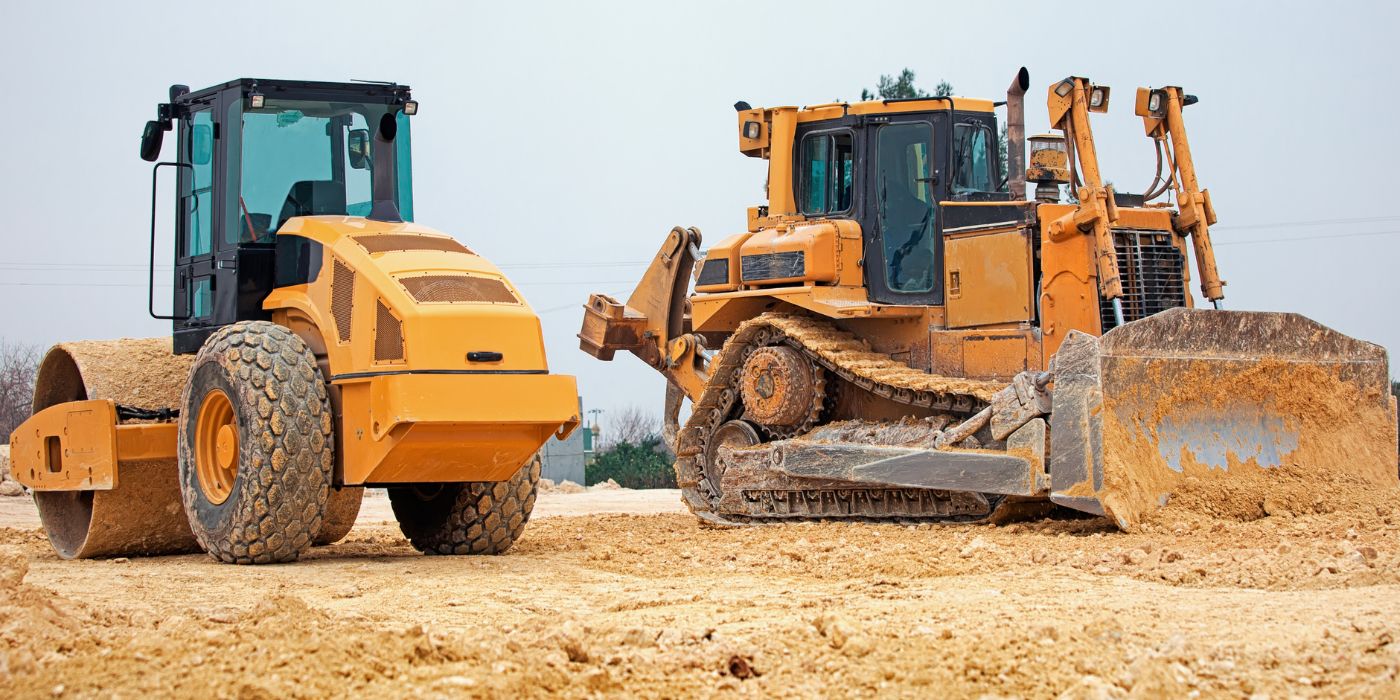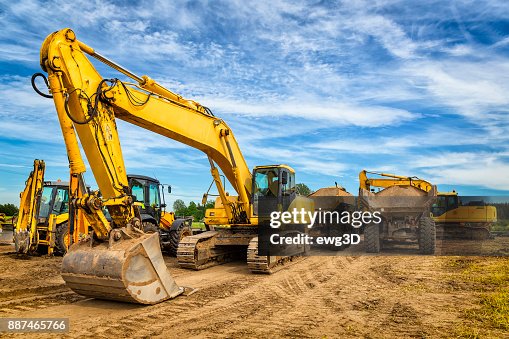Forklift Rental in Tuscaloosa AL: Versatile Training Solutions for Your Needs
Forklift Rental in Tuscaloosa AL: Versatile Training Solutions for Your Needs
Blog Article
Checking Out the Financial Perks of Renting Construction Equipment Contrasted to Having It Long-Term
The decision between renting and owning building equipment is pivotal for economic management in the industry. Renting out offers immediate price financial savings and operational adaptability, allowing companies to designate resources more successfully. In contrast, ownership includes significant long-lasting monetary commitments, consisting of upkeep and depreciation. As contractors consider these choices, the impact on capital, job timelines, and innovation access becomes progressively considerable. Understanding these nuances is necessary, particularly when taking into consideration exactly how they align with details job demands and financial methods. What variables should be focused on to guarantee optimum decision-making in this complicated landscape?

Cost Contrast: Leasing Vs. Having
When examining the economic implications of possessing versus renting out construction devices, a comprehensive price comparison is important for making educated choices. The choice between owning and leasing can considerably impact a firm's lower line, and comprehending the connected expenses is vital.
Renting building equipment generally involves lower ahead of time costs, enabling companies to allocate resources to other functional demands. Rental expenses can gather over time, potentially going beyond the cost of ownership if equipment is required for an extensive duration.
Conversely, having construction equipment requires a significant first financial investment, along with recurring prices such as funding, devaluation, and insurance policy. While ownership can lead to long-term cost savings, it also binds resources and might not supply the exact same level of flexibility as renting. Additionally, possessing tools requires a commitment to its utilization, which might not constantly line up with job demands.
Inevitably, the decision to have or rent should be based upon a comprehensive evaluation of certain project demands, financial ability, and lasting strategic objectives.

Upkeep Costs and Responsibilities
The choice between having and leasing building and construction equipment not just includes economic considerations however additionally encompasses continuous upkeep expenditures and responsibilities. Having tools calls for a significant commitment to its maintenance, that includes routine assessments, fixings, and potential upgrades. These responsibilities can swiftly collect, bring about unforeseen expenses that can stress a spending plan.
On the other hand, when renting out tools, upkeep is typically the obligation of the rental business. This plan enables service providers to stay clear of the economic burden associated with wear and tear, in addition to the logistical difficulties of scheduling repair work. Rental agreements frequently include provisions for upkeep, suggesting that contractors can focus on finishing tasks as opposed to stressing over equipment condition.
Additionally, the varied variety of tools available for lease enables firms to choose the current models with innovative innovation, which can improve performance and productivity - scissor lift rental in Tuscaloosa Al. By opting for leasings, businesses can stay clear of the long-term responsibility of equipment devaluation and the connected maintenance frustrations. Eventually, examining maintenance expenditures and obligations is important for making an informed choice about whether to possess or rent out building and construction equipment, significantly influencing overall task costs and functional efficiency

Depreciation Influence on Ownership

A significant element to think about in the decision to have building devices is the effect of depreciation on overall ownership costs. Depreciation stands for the decline in worth of the tools with time, affected by aspects such as usage, deterioration, and developments in go innovation. As tools ages, its market price decreases, which can significantly influence the proprietor's financial setting when it comes time to market or trade the tools.
For building firms, this devaluation can translate to significant losses if the equipment is not used to its greatest potential or if it ends up being out-of-date. Owners should represent devaluation in their economic estimates, which can lead to higher overall prices compared to renting. Furthermore, the tax obligation effects of devaluation can be intricate; while it may offer some tax obligation advantages, these are usually offset by the reality of decreased resale value.
Eventually, the problem of depreciation emphasizes the significance of comprehending the long-lasting monetary commitment included in having building devices. Business must thoroughly assess exactly how typically they will use the equipment and the potential financial influence of devaluation to make an educated decision concerning possession versus leasing.
Monetary Flexibility of Renting
Renting out building and construction devices provides significant economic adaptability, enabling companies to allocate sources a lot more efficiently. This adaptability is specifically vital in a market characterized by changing job demands and differing workloads. By deciding to lease, companies can stay clear of the considerable capital official source expense required for acquiring devices, preserving capital for other operational needs.
Furthermore, renting tools enables business to tailor their tools options to details job needs without the long-lasting dedication associated with possession. This means that organizations can easily scale their devices supply up or down based on anticipated and present task needs. Subsequently, this flexibility reduces the threat of over-investment in equipment that may end up being underutilized or out-of-date over time.
One more economic advantage of leasing is the capacity for tax obligation advantages. Rental payments are commonly considered operating costs, permitting prompt tax obligation deductions, unlike depreciation on owned equipment, which is spread over numerous years. scissor lift rental in Tuscaloosa Al. This instant expenditure recognition can additionally boost a firm's cash position
Long-Term Project Considerations
When assessing the long-term requirements of a construction organization, the decision in between leasing and owning tools ends up being more complicated. For projects with prolonged timelines, purchasing devices might seem useful due to the capacity for reduced total costs.
The construction industry is developing rapidly, with brand-new tools offering boosted performance and safety attributes. This flexibility is especially beneficial for companies that deal with diverse projects requiring different kinds of tools.
In addition, economic security plays a vital role. Owning equipment often requires substantial capital expense and depreciation concerns, while renting enables even more foreseeable budgeting and money flow. Inevitably, the option between having and renting should be lined up with the tactical objectives of the building and construction service, taking into consideration both current and awaited project needs.
Conclusion
To conclude, renting building equipment supplies considerable financial benefits over long-term possession. The minimized ahead of time costs, elimination of maintenance obligations, and avoidance of devaluation add to improved capital and economic flexibility. scissor lift rental in Tuscaloosa Al. In addition, rental payments act as immediate tax obligation reductions, even more profiting professionals. Inevitably, the decision to lease as opposed to own aligns with the vibrant nature of second hand construction equipment building and construction jobs, permitting flexibility and access to the most recent tools without the monetary problems associated with ownership.
As devices ages, its market value reduces, which can significantly affect the owner's financial position when it comes time to trade the equipment or sell.
Renting construction devices supplies substantial monetary versatility, enabling business to assign resources more efficiently.In addition, renting out devices allows firms to tailor their equipment choices to specific task demands without the long-lasting commitment linked with possession.In final thought, renting building tools offers significant monetary advantages over long-term ownership. Ultimately, the choice to lease instead than own aligns with the vibrant nature of construction jobs, enabling for flexibility and accessibility to the newest devices without the economic worries connected with ownership.
Report this page